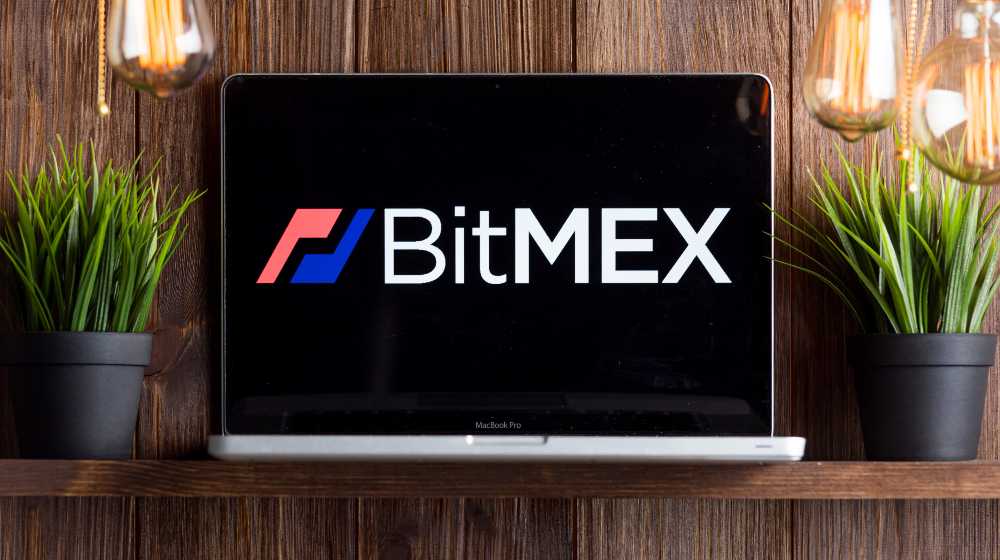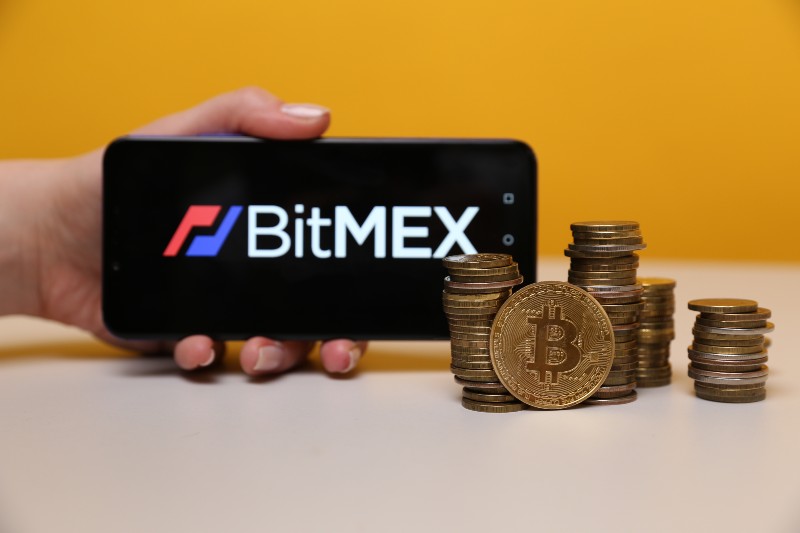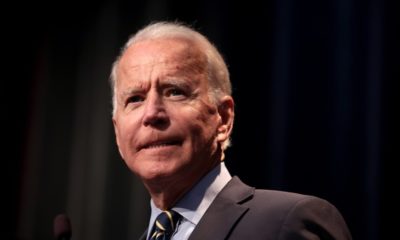Bitcoin
BitMEX CEO Expects 5 to 10 Countries to Adopt Bitcoin by Next Year

BitMEX | El Salvador’s adoption of Bitcoin as legal tender was a major landmark of the crypto world. Bitcoin is decentralized programmable money, or in other words, just lines of code.
Now that it has legal status in El Salvador and is recognized in other countries, what does its future look like?
RELATED: Bitcoin Crashes As El Salvador Makes It Legal Tender
BitMEX CEO Expects 5 to 10 Countries to Adopt Bitcoin by Next Year

That’s what crypto experts discussed at a Bitcoin Adoption by Countries panel at the Bitcoin & Beyond Virtual Summit sponsored by Forkast. News and AAX.
The panel included Alexander Hoeptner, CEO of crypto exchange BitMEX; Lord Fusitu’a, a member of parliament in the small Oceanian country of Tonga; and Binance-owned crypto exchange WazirX founder and CEO Nischal Shetty.
The panel was moderated by Lucy Gazmararian, founder and managing partner of Token Bay Capital, which invests in digital assets and blockchain companies, and is also co-chair of the Fintech Association of Hong Kong’s Blockchain Committee and founder of Women in Crypto, Hong Kong.
Shetty compared the impact of cryptocurrencies to that of the advent of the internet. The internet allowed a free, easy, and almost instantaneous exchange of information leading to a leapfrogging effect on technology, advancement, and inclusion.
Similarly, cryptocurrencies enabled the exchange of money irrespective of one’s geographical location — a feat that was previously not possible because fiat currencies were confined to different jurisdictions. In other words, cryptocurrencies made “value exchange” easy, Shetty said.
Adopting Bitcoin has had a massive effect on the financial inclusion of El Salvador. Some 70% of the country was underbanked until Bitcoin was formally adopted.
However, as of last month, more people in the country have a Chivo wallet — El Salvador’s Bitcoin wallet — than traditional bank accounts. This means that a huge chunk of the country’s population was introduced and included in the financial world for the very first time.
Besides, Shetty said, “Traditionally, every nation has to create its own ecosystem of startups and develop services around the financial world.
Now, you can dip into what the world is building … so why constrain yourself to only your geographic boundaries, and why not tap into this global powerhouse, which is Bitcoin.”
This means that instead of developing financial technology in silos, countries can now have a “financial ecosystem which is global in nature,” Shetty added.
He went on to say that Bitcoin and other cryptocurrencies can effectively bridge the gap between two types of economies — one that has a shortage of cheap capital like India and one which has excess capital leading to low-interest rates like the U.S.
El Salvador’s adoption of Bitcoin wasn’t free from criticism. While some supported it, others protested against it.
According to Hoeptner, the main criticism around El Salvador’s adoption of Bitcoin is that it might potentially lead to the rise of monopolistic power.
Bitcoin, according to Hoeptner, causes democratization of investments since people can start investing with very small sums, which means that the concentration of too much influence, political or otherwise, on the development of Bitcoin could go against the original objective of democratization.
But on the bright side, Bitcoin offers “protection against inflation, against high remittances [costs] and high dependencies on global financial markets,” Hoeptner said.
Global financial markets are acutely intertwined and a shortfall in one market has a snowball effect across the globe, like the 2008 financial crisis.
It was the same crisis that inspired pseudonymous Satoshi Nakamoto to create Bitcoin and offer investors protection against centralized financial market crashes.
“So it is a natural means for countries like El Salvador to go in that direction,” Hoeptner said. However, “We have to be careful that we don’t fall into the next monopoly structure as we have with the global financial market,” he added.
Over the next few years, “Bitcoin adoption will be propelled by the emerging markets,” Fusitu’a said. This is because Bitcoin adoption, especially on the Lightning Network can help achieve two things — reduce gross domestic product dependence on remittance and increase disposable income.
Around 24% of El Salvador’s GDP comes from remittances. In Tonga, it is close to 40%. In countries with a high rate of remittance, adopting Bitcoin on the Lightning Network can reduce the cost of remittances.
Fusitu’a said emerging economies lose a little under US$200 billion a year in remittance fees.
Therefore, reducing the cost of cross-border payments can help countries save that amount and will lead to an increase in the disposable income of the population.
And once people start having an extra income, they will likely start saving in Bitcoin instead of fiat currencies, Fusitu’a said. “It [Bitcoin] begins as a medium of exchange to protect against GDP remittance dependence and hyperinflation, and then works towards a store of value as people get used to having the extra disposable income,” he added.
And because Bitcoin will increase financial inclusion as people who have been historically underbanked get introduced to the financial system like in El Salvador, Bitcoin adoption will be largely driven by these emerging markets, Fusitu’a said.
Besides, the large inflow of institutional and previously risk-averse capital into Bitcoin is going to make it more and more attractive for countries and central banks to adopt it.
The emerging markets and potential Bitcoin adopters include Panama, Uruguay, Brazil, Tanzania, and Nigeria, Fusitu’a said. Supporting Fusitu’a’s view, Hoeptner said: “I think Salvador is now the first one, I even can say from the comments before that, maybe five to 10 countries might adopt it next year.”
Moreover, as more and more countries push for their fiat currencies to be adopted as the world reserve currency, “Bitcoin is most likely the West’s best chance at holding on to world reserve currency status,” Fusitu’a said.
Shetty believes in the next few years, Bitcoin and crypto will not remain an “exception” but become a “norm.” So what crazy Bitcoin headlines do these veterans foresee in the future?
Hoeptner said the U.S. adopting Bitcoin as legal tender would be a shocking headline, but a more realistic headline would be Amazon accepting Bitcoin.
Shetty said: “Everyone wants to kill Bitcoin, and I think someday there will be a time to say Bitcoin is not dead.” He went on to say that seeing Bitcoin adopted as the global standard, as the world reserve currency, would be a true delight.
“Warren Buffett [American investment tycoon and billionaire] moving his entire net worth into Bitcoin and then Jamie Dimon [CEO of J.P. Morgan Chase] trumping him by doing so and then doing it on Lightning [network],” is what Fusitu’a would like to see.
“And then Peter Schiff [American stock broker] trumping him by doing so, but putting laser eyes on his Twitter profile,” said Fusitu’a, making the whole panel chuckle.
- General Electric To Split Into 3 Public Companies
- Total US Household Debt Reaches $15 Trillion For The 1st Time
- Voters Have a Problem With Authority
Keep up to date with the latest finance news by following us on Facebook and Instagram.
Article Source: NewsEdge















